AWS Solution Architect Certification Training
- 186k Enrolled Learners
- Weekend/Weekday
- Live Class
Do you know what Azure is? Do you have any idea why and how it is used? If you want the answers to these questions, you have landed at the right place. This Azure Tutorial blog will give you an introduction to Microsoft Azure, covering all the Why, What, and How aspects of it.
Let us get started.
Microsoft Azure is a cloud computing platform created by Microsoft which developers and IT professionals use to build, deploy and manage applications through their global network of data centres.
You can learn more from the Azure architect certification training program.
Alternatively, you can watch the video below by our Azure training expert discussing Azure concepts along with practical sessions.
According to the latest Indeed survey, the demand for Azure Solutions Architects is increasing, and hence, it makes sense for you to upgrade yourself to be the master of the cloud. The job market for Azure professionals is expanding rapidly as more companies adopt cloud-based solutions.
Related Learning: Azure Interview Questions
Microsoft Azure provides various services that would help you in computing in one way or the other and these services are clubbed into domains. Here are a few notable domains:
There are plethora of services you would wanna checkout, you may checkout this stack of Azure Resources to no more.

This might easily be one of the most popular reasons to learn and use Microsoft Azure. For people who are new and want to learn about the technology, Azure provides free Credits that can be used to access Azure services for free for a short duration. This is sufficient to get one started.
Azure is extremely flexible and offers a pay-as-you-go approach which can greatly help serve your business needs. Flexible pricing greatly supports up-scaling or down-scaling the architecture as per the needs.
This was about Azure pricing. Now, let’s continue with this Azure tutorial and discuss what Certifications Azure offers.
How AI in cloud solutions is optimizing, improving productivity, and reducing the cost. To know more Enroll in our AI 900 certification course today!
Microsoft Azure aims to fill in the skill gap between the industry requirement and the resources available and to do that they have taken following measures:
Unlock new IT opportunities with Azure 104 certification in your skillset!
The Azure Certifications classified into three major categories, which are:
These certifications have levels where one has to first get an associate level certification and then use it as a stepping stone for Advanced level certification.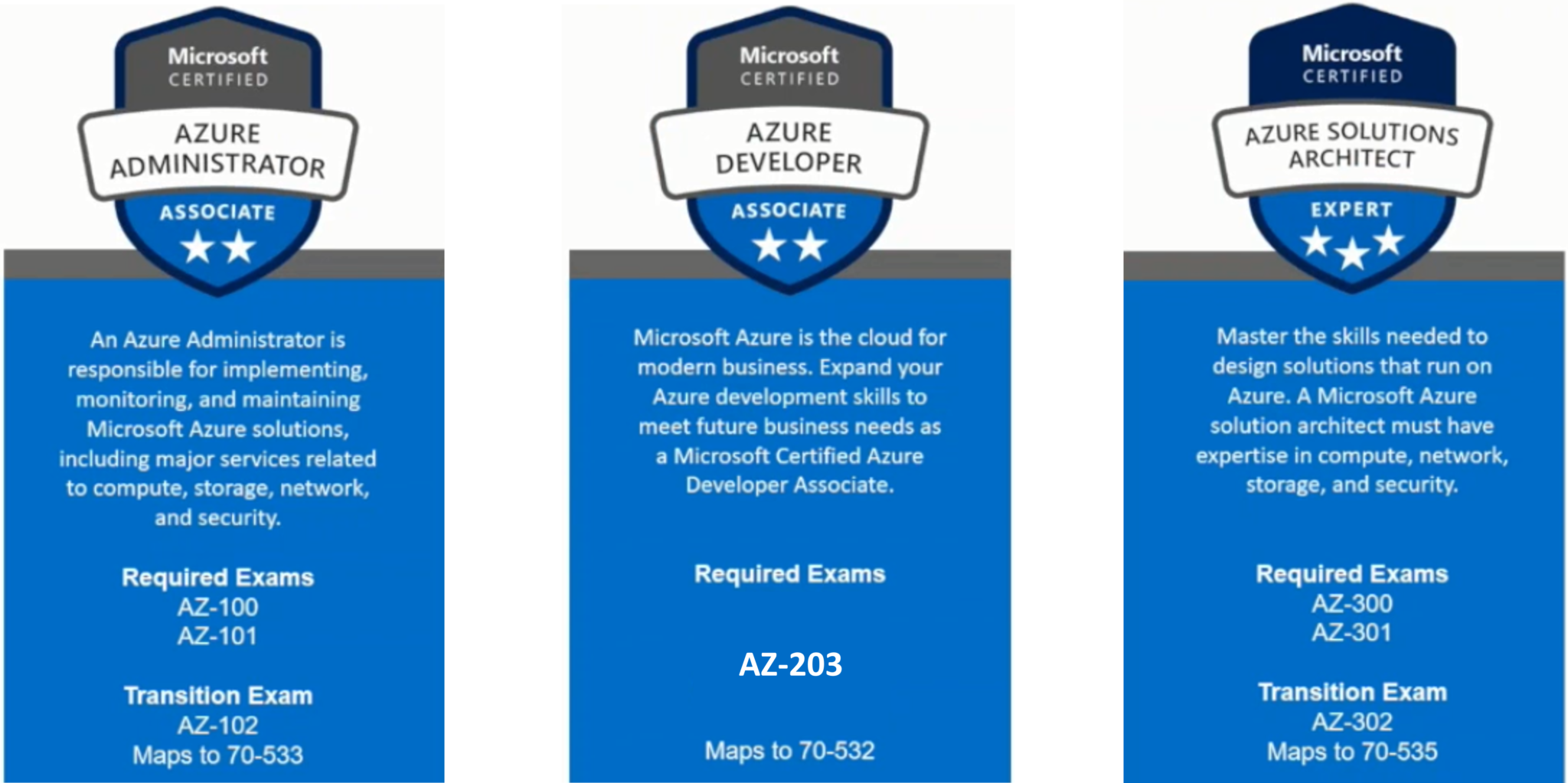
Shape the future of technology with the Azure Cloud Engineer Certification Course!
Azure Portal as the name suggests, is a single portal or a single junction that lets you access and manage all your applications at one place. It lets you build, manage and monitor everything from simple web apps to complex cloud applications in a single, unified console.
Related Learning: Learn about Azure Data Studio
Below are some of the features or functionalities offered by Azure Portal:
Unlock endless possibilities in the tech world with an expert Azure DevOps course.
Step1:
Start by creating a free tier account with Azure. If you have a paid account even that will do. If you don’t then you just have to visit the link ‘portal.azure.com‘. Enter the required details. With that you will avail free services or credits that can be used for one month duration. You would be asked to enter your credit or debit card details. But you wont be charged without your consent.
Step2:
Once you have an account go ahead and login to azure account and you will be directed to portal in the image below:

In the image above you have the Azure portal with three sections, namely chronologically:
If you wish to know more about Azure Portal refer this Azure Portal Article
Step 3:
To create a VM in Azure, click on create a resource and a small panel would unfold, go ahead and select Windows Server 2016 VM on the top left of the newly opened panel.

Step 4:
The Panel shown below opens up, fill in the details like what subscription are you using, use an existing resource group if you have one or create one like I did and then scroll down.
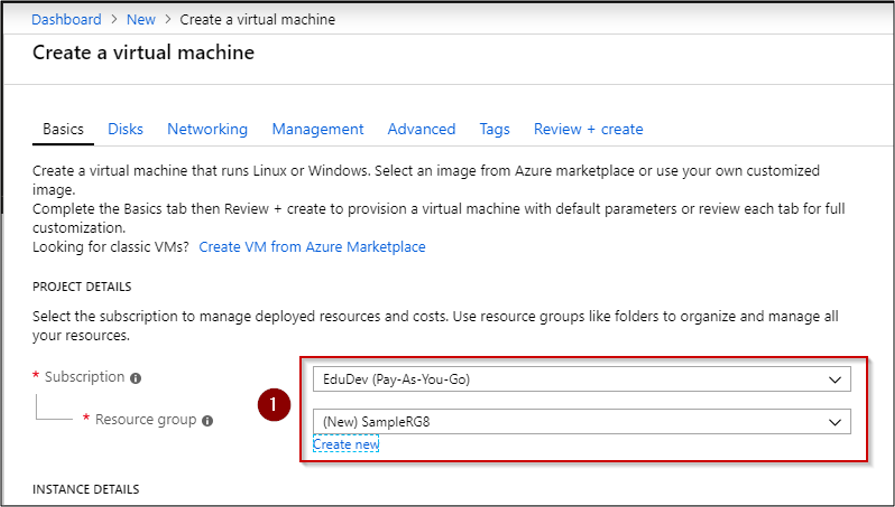
Step 5:
Once you scroll down you would be expected to enter the instance details like, Name of the instance, region where you want to create an instance, availability, and image or VM instance size etc
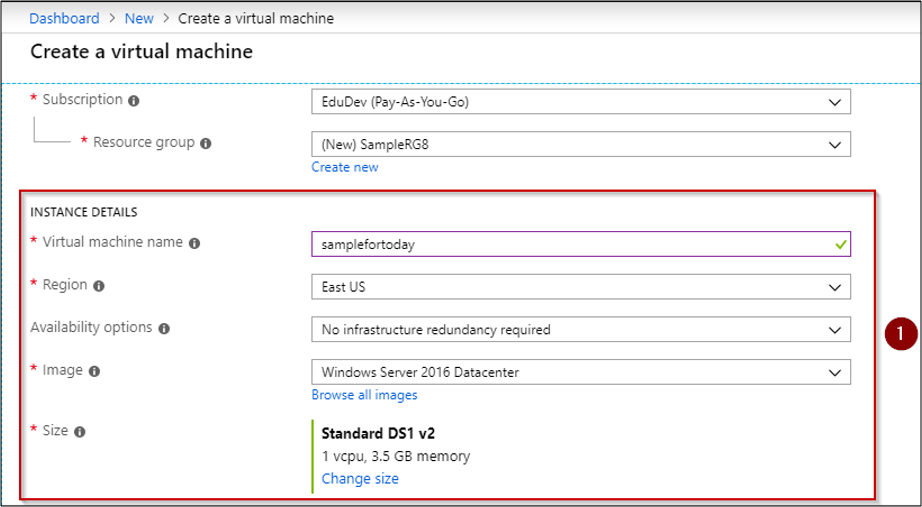
Step 6:
Next create a valid password and username and then click on ‘review + create‘ at the bottom left of your screen
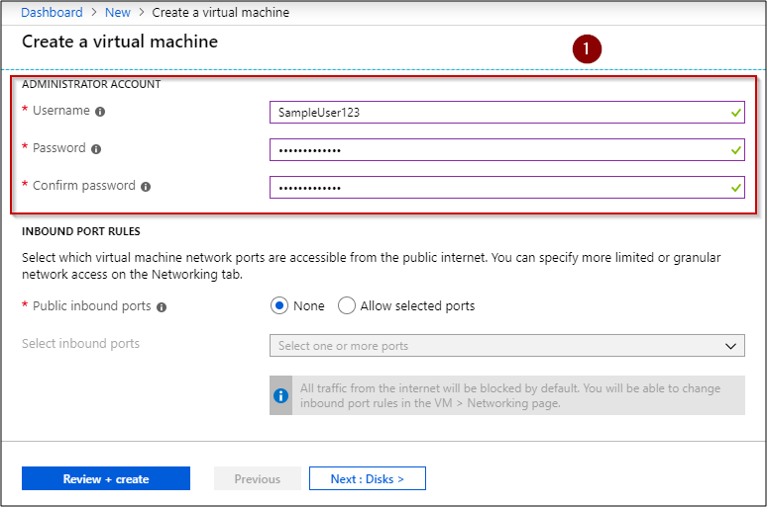
Step 7:
The next window will give you information about the about the configurations that you need to review. Once you are done click on create and the deployment process starts.
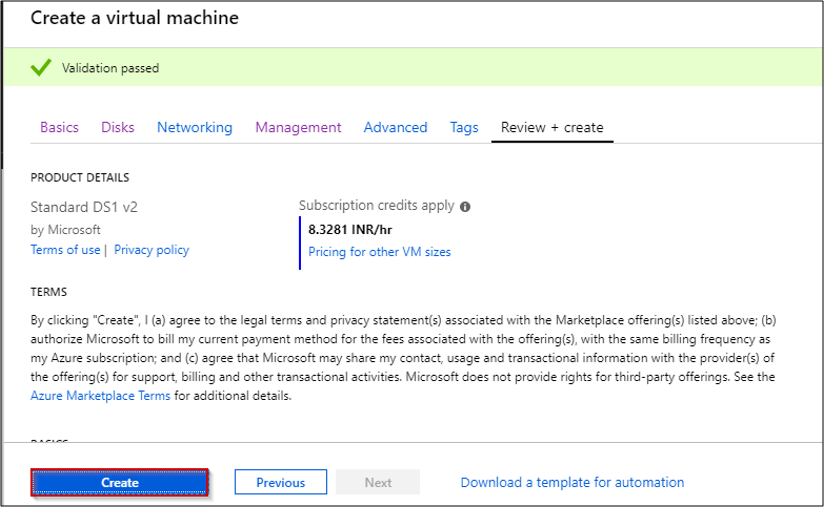
Step 8:
Once the deployment is complete following window will appear, click on go to the resource to view the resource,
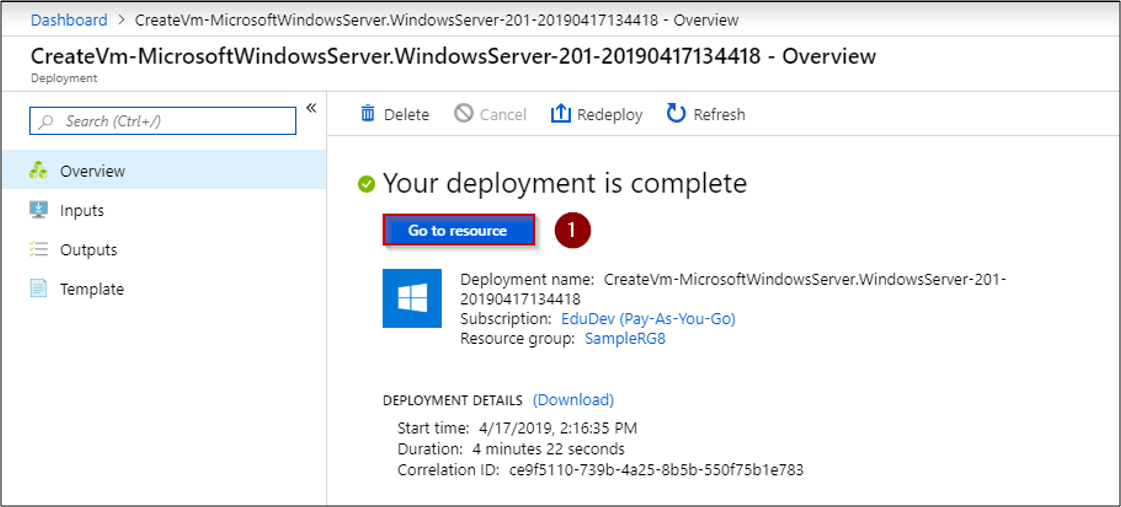
Step 9:
And there you go, your instance is up and ready, you can connect to it using SSH and using RDP, if you use RDP all you have to do is click on connect, select RPD and a file will be downloaded open it and a window will appear. Click connect and you are good to go. Just make sure you go to networking and allow inbound traffic to your instance, in case it does not open.
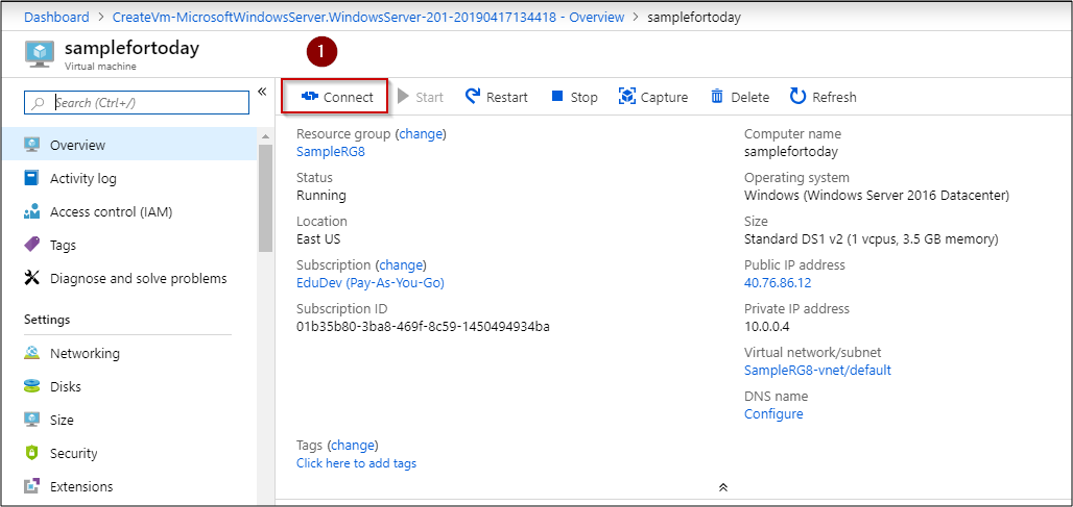
So this brings us to the end of this Azure tutorial; I hope you liked it. You can also check out now the Azure Storage Tutorial or Azure Virtual Network Tutorial for more.
Do you have a question for us? Please mention it in the comments section, and we will respond to you.
 Thank you for registering Join Edureka Meetup community for 100+ Free Webinars each month JOIN MEETUP GROUP
Thank you for registering Join Edureka Meetup community for 100+ Free Webinars each month JOIN MEETUP GROUPedureka.co